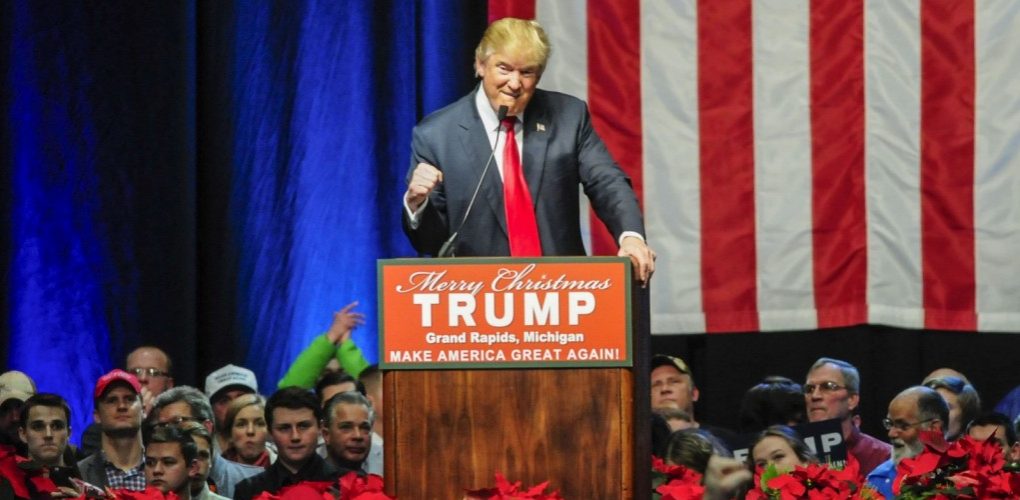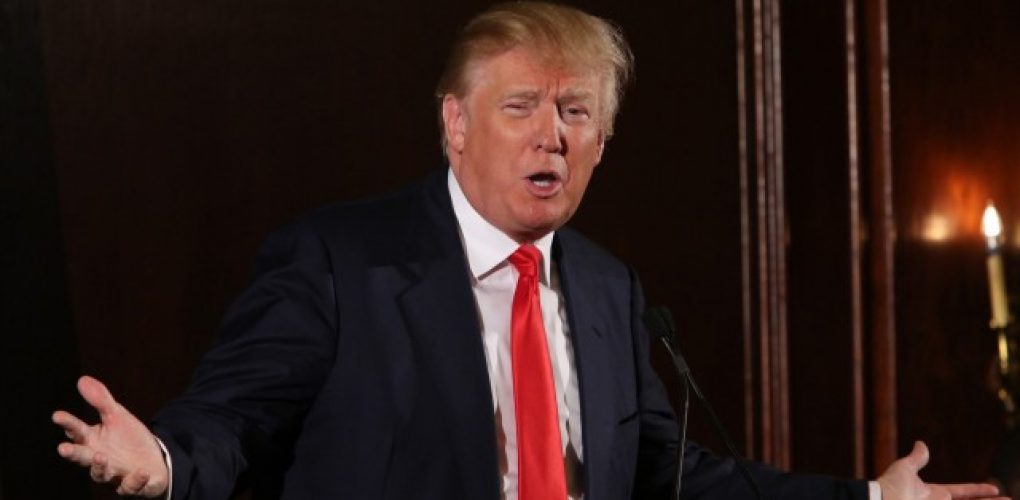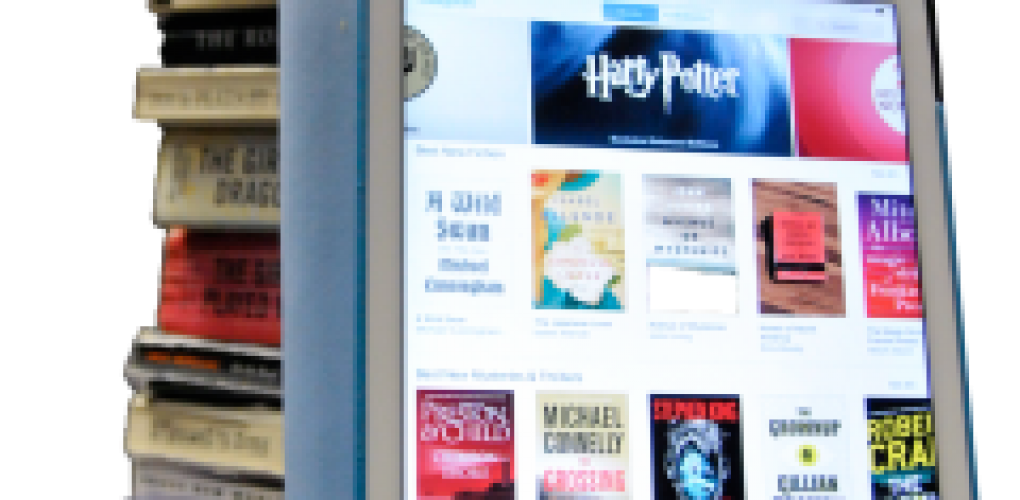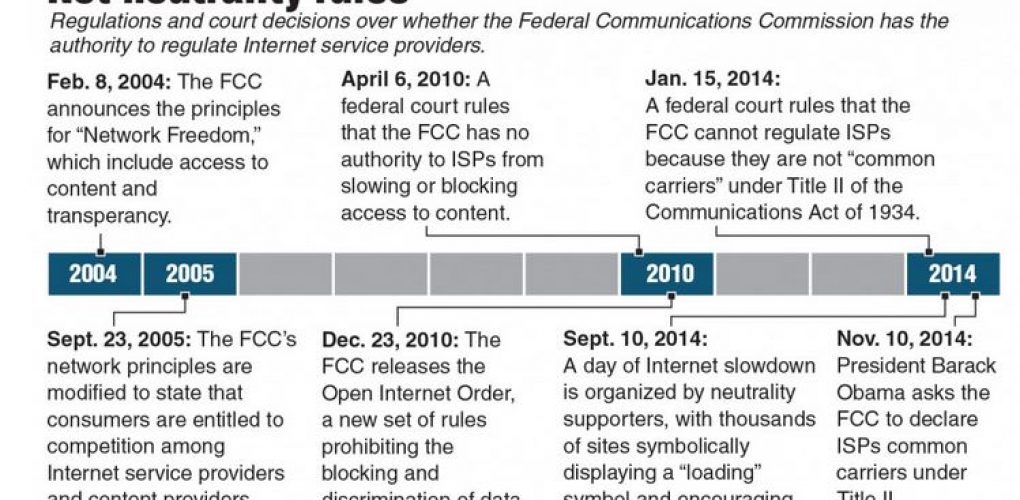EDITORIAL: Donald Trump cannot be the Republican nominee
By The Collegiate Staff –
Voting against Donald Trump is the most important thing you can do next week over spring break.
With Michigan’s open primary rules, any registered voter can vote for either party March 8. Republicans, Democrats and Independents alike should vote against Trump in the Republican primary.
While Trump’s antiestablishment populism may be attractive to some, it is highly toxic to our democracy. His refusal Sunday to denounce the Ku Klux Klan and its former leader David Duke and his failure to distance himself from a quote from Italian fascist dictator Benito Mussolini should disqualify him from the presidency.
"@ilduce2016: “It is better to live one day as a lion than 100 years as a sheep.” – @realDonaldTrump #MakeAmericaGreatAgain"
— Donald J. Trump (@realDonaldTrump) February 28, 2016
When CNN’s Jake Tapper asked about Duke and the KKK, Trump said he needed to research the group before commenting. Trump claimed the incident was due to a faulty earpiece, but Tapper very clearly said “Duke” and “KKK” and Trump told Tapper that he doesn’t “know anything about David Duke… (or) white supremacy or white supremacists.”
When Trump was asked about Duke two days earlier during a campaign event Friday, he said he disavowed the former KKK leader. What happened in the intervening hours to cause this amnesia? How do you go from disavowing to needing to do more research in less than three days?
Sunday wasn’t even the first time Trump talked about Duke on national television. In a 2000 interview with NBC’s Matt Lauer, when Trump was considering running for president under the Reform Party, which included divisive former GOP presidential candidate Pat Buchanan who was supported by Duke, he called Duke a “bigot” and a “racist.”
His own rhetoric has been racist since his announcement speech, when he called Mexican undocumented immigrants “rapists” and drug dealers. His proposed ban on Muslim immigrants is unprecedented and would likely be judged unconstitutional.
More broadly, HBO’s John Oliver and Comedy Central’s Trevor Noah have each done segments this past week explaining why Trump should not be considered for the GOP nomination.
On the Feb. 28 episode of “Last Week Tonight,” Oliver argued that Trump’s words and his actions don’t mesh. Here are some of the strengths voters are drawn to — and Oliver’s counterpoints:
- “He tells it like it is”: “Does he? Because the website PolitiFact checked 77 of his statements, and rated 76 percent of them as varying degrees of false.”
- “He is truly independent and not beholden to anyone”: “While it is true that he hasn’t taken corporate money, the implication that he has personally spent $20 to $25 million is a bit of a stretch, because what he’s actually done is loaned his own campaign $17.5 million and has just personally given just $250,000. And that’s important, because up until the convention he can pay himself back for the loan with campaign funds.”
- “He’s tough”: “For a tough guy, he has incredibly thin skin. Back in 1988, Spy magazine called him a short-fingered vulgarian. And ever since, the editor Graydon Carter says he receives envelopes from Trump, always with a photo on which he circled his hand to highlight the length of his fingers, usually with a note reading, ‘See, not so short!’”
- “His success”: “While yes, he has made more money than most of us will make in a lifetime, not only did he get a multimillion-dollar inheritance from his father, but he’s also lost a huge amount.”
Oliver also noted that Trump’s policy positions have been incredibly inconsistent.
“He’s been pro-choice and pro-life, for and against assault weapon bans, in favor of both bringing in Syrian refugees and deporting them out of the country,” Oliver said.
This would be a problem for any other presidential candidate. John Kerry wasn’t elected in 2004 in large part because his opponent, President George W. Bush, labeled him a “flip-flopper.” But Trump supporters don’t concern themselves with such things.
On the Feb. 29 episode of “The Daily Show,” Noah used a New York Times article, video evidence of Trump’s speeches and his refusal to back down from the Mussolini quote retweet to show how fascistic the businessman’s campaign is.
The article gave the following definition of fascism which Noah used throughout the segment:
…a cult of action, a celebration of aggressive masculinity, an intolerance of criticism, a fear of difference and outsiders… an intense nationalism and resentment at national humiliation…
Since the 2000 Florida recount, late night comedy has been saying what actual news media won’t. Their analysis of Trump is no different.
Trump’s brand of isolationist nationalism is more similar to the UK Independence Party (UKIP) in Britain or the National Front in France than it is to populist movements in American history.
A Trump nomination should scare not only Democrats, but conservative Republicans should be concerned as well. The National Review, a weekly conservative magazine, dedicated an entire issue last month to opposing Trump’s candidacy and featured such right-wing heavyweights as Glenn Beck, Mark Helprin and Bill Kristol.
Our #AgainstTrump symposium will be live on the website at 10pmET pic.twitter.com/A47BD0aJn1
— National Review (@NRO) January 22, 2016
If Trump is the Republican nominee, the party is in severe trouble. The most recent CNN/ORC poll shows that 48 percent of Republicans would probably or definitely not support Trump in November.
The GOP has been split between traditional conservatives and the Tea Party since shortly after Barack Obama won the White House in 2008. It was this fracture that lead to John Boehner stepping down as Speaker of the House last fall. Nominating Trump could lead to a full-blown schism.
The time to laugh at Trump’s candidacy is over. He won New Hampshire, South Carolina and Nevada and came in second in Iowa. No candidate has won three out of the first four voting states and not received their party’s nomination.
Trump had 82 delegates before Super Tuesday, four times as many as second-place Ted Cruz. After Super Tuesday, that number is up to 319 and counting, with Cruz at 226
However, with such a fragmented field, there is still a slim chance that Trump will not reach the 1,237 delegates necessary to secure his party’s nomination. In that case, the GOP will hold a brokered convention where the nominee is chosen at the convention itself this summer.
A brokered convention becomes less likely and a Trump nomination more likely with every contest held unless voters stand up to the billionaire bully.
Michigan holds 59 Republican delegates. Under GOP rules, delegates are awarded starting at 15 percent of the vote, or all 59 delegates will be awarded to a single candidate if he wins more than 50 percent of the vote.
Trump, Cruz, and Marco Rubio all reach the 15 percent threshold in the RealClearPolitics polling average. John Kasich does not, but he’s close with 12.2 percent. Independents and Democrats could help push Kasich above the threshold, forcing a four-way division of delegates rather than a three-way split.
In Michigan, voters don’t need to be registered with a party to vote in their primary. The only requirement is to be a registered voter. In 2008, the last non-incumbent presidential election year, voter turnout was around 19 percent, less than 1.5 million people.
Democrats should consider selecting a GOP ballot on Tuesday. Even those who believe Trump gives them the “best chance” at winning the election in November. This is underestimating the salesmanship of Trump.
If Trump wins the Republican nod, he has a chance to win. If rational people step into the voting booth and deny him the nomination, then America wins.
This is your chance to make a difference.









